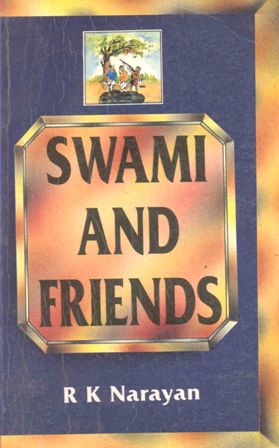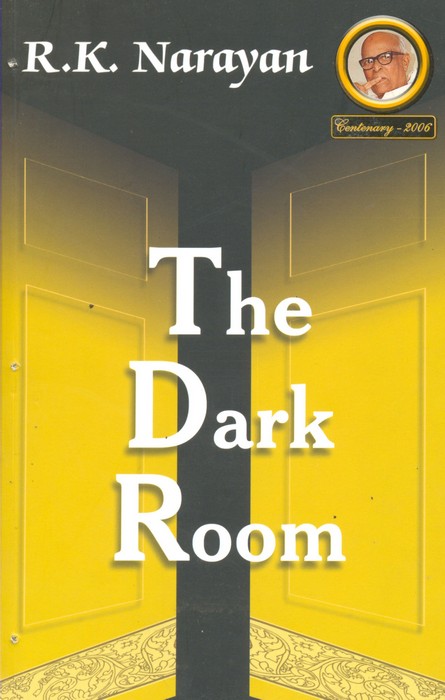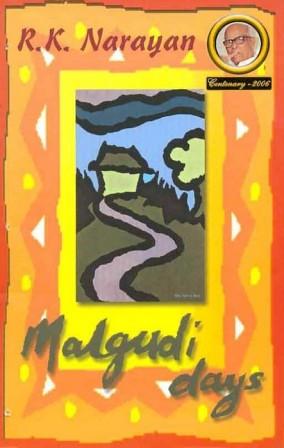-
Swami And Friends
Swami is ten years old, and life for him consists mainly of having adventures with his friends, avoiding the misery of homework, and coping as best as he can with the teachers and other adults he encounters. His greatest passion is the M CC - the Malgudi Cricket Club - which he founds together with his friends: his greatest day is when the examinations are over and school breaks up - a time for revelry and cheerful ritousness. But the innocent and impulsive Swami lands in trouble when he is carried away by the more serious unrest of India in 1930. Somehow he gets himself expelled from two schools in succession, and when things have gone quite out of hand he is forced to run away from home ... This is far more than a simple narrative of Swami's adventures - charming and entertaining as they are. By the delicate sympathetically observed, the author establishes for us the child's world as the child himself sees it: and beyond, the adult community he will one day belong to - in Swami's case, the town of Malgudi,which provides the setting of almost all Narayan's later novels.
-
Grandmother's Tale
GRANDMOTHER'S TALE, Narayan's latest work, is the story of his great-grandmother who lived in the later period of the East India Company. Bala, the central character, was married at the early age of seven to Viswa a boy of ten. One day, he just left bidding her good-bye, joining a group of pilgrims going to Pandaripur. Years go by and there is no trace of him. Bala, now a young woman finds life extremely difficult with the entire agraharam gossipping about her husband's fate. She leaves home, determined to find him. The arduous journey she undertakes to Poona, her success in locating Viswa and persuading him to return to the South and their long, happy life in Kumbakonam, where five children are born to them, Bala's death and eventually Viswa's death due to poisoning by his cook form rest of the narrative. The delineation of Bala from an innocent school-girl to a firm, determined, aggressive young woman and finally to a quite, docile, orthodox Hindu wife is fascinating! The seasoned Narayan reader will not fail to observe the author himself in the role of "the talkative man"!
-
The Dark Room
In this poignant tale, R K Narayan again takes us back to Mysore and into the enchanting world of his fictitious town, Malgudi, where we are introduced to Savitri and Ramani. As in many of Narayan's novels, conservatism and reform are contrasted with the quiet irony and subtle humour which have become so characteristic of this author. Savitri is made to feel how completely dependent she is upon her husband, Ramani, when pressure is brought to bear upon their long-standing marriage. Ramani strongly recommends that the Engladia Insurance Company employ the rather elegant and fiercely independent Mrs. Shanta Bai, recently separated. Events reach a climax when Savitri's favourite piece of furniture, a bench, is borrowed by Ramani to furnish the room he has hurriedly assembled for Shanta Bai in the office. Savitri retreats into herself and lies quite still in the one private place she has of her own, the dark room. After further betrayal, Savitri gathers up the very few belongings she has and walks out of the house, leaving her children staring dumbfoundedly after her. Savitri attempts to drown herself, but is rescued. For a short time she struggles to be self-sufficient, but realizes quite soon that she must return although a part of her has died. Narayan's sympathetic treatment of his characters makes this a most fulfilling and touching book to read.
-
Malgudi Days
Malgudi Days is amoung Narayan's collection of short stories. The stories written with Narayan's simple style and characteristic gentle irony portray the variety and colour of Indian life. Narayan, in his introduction says: "I have named this volume Malgudi Days in order to give it a plausibly geographical status. I am often asked, 'Where is Malgudi?' All I can say is that it is imaginary and not to be found on any map...If I explain that Malgudi is a small town in South India I shall only be expressing a half-truth, for the characteristics of Malgudi seem to me universal." Readers cannot agree more.




